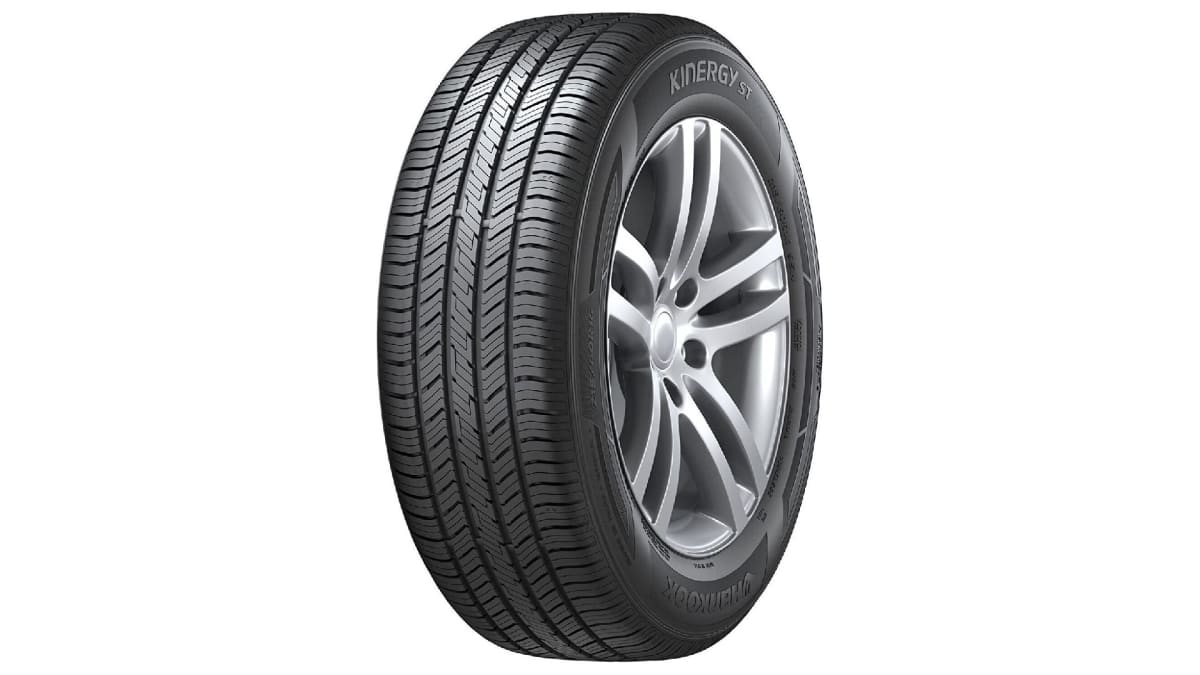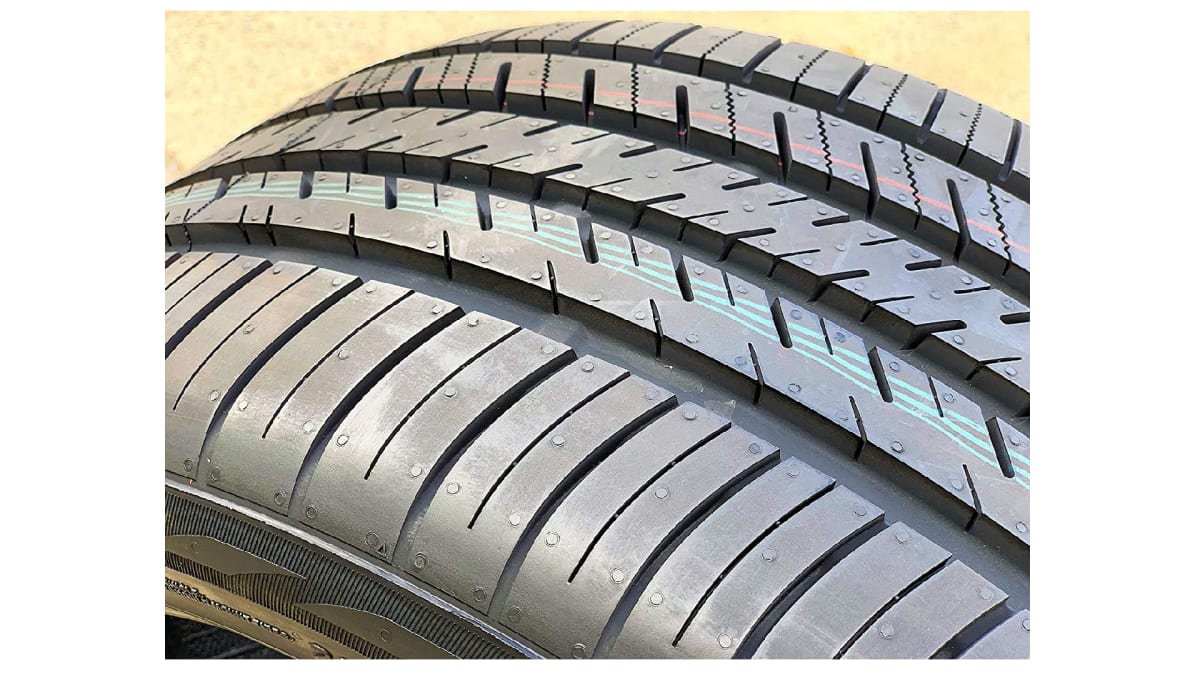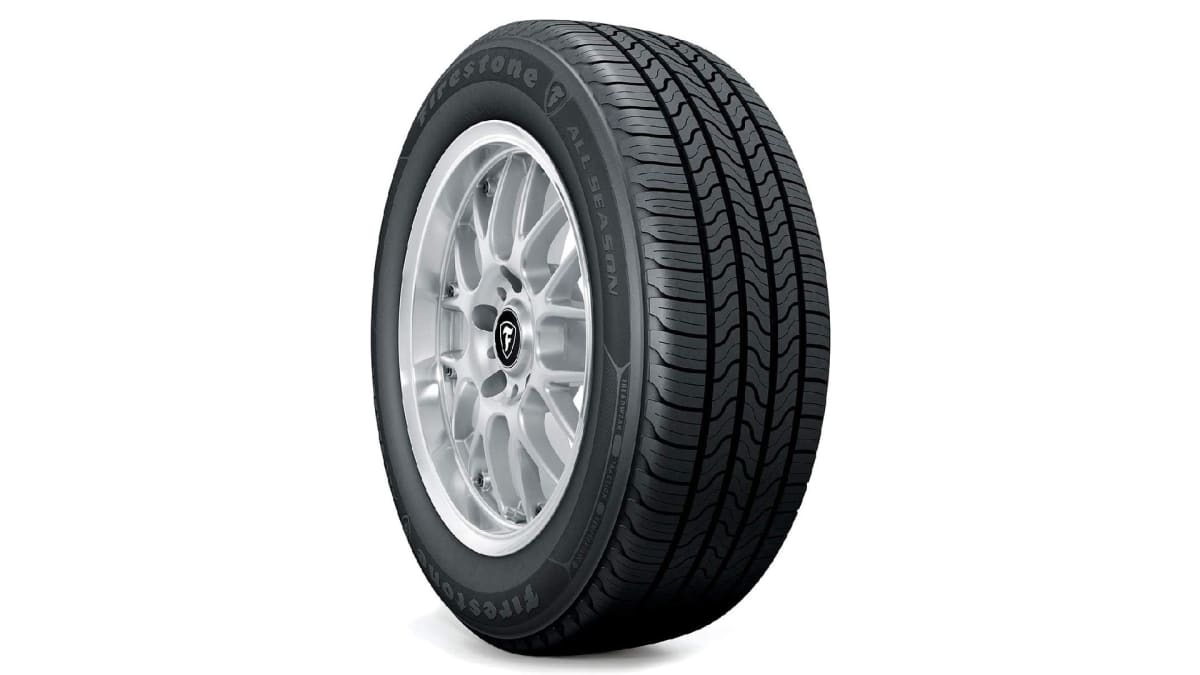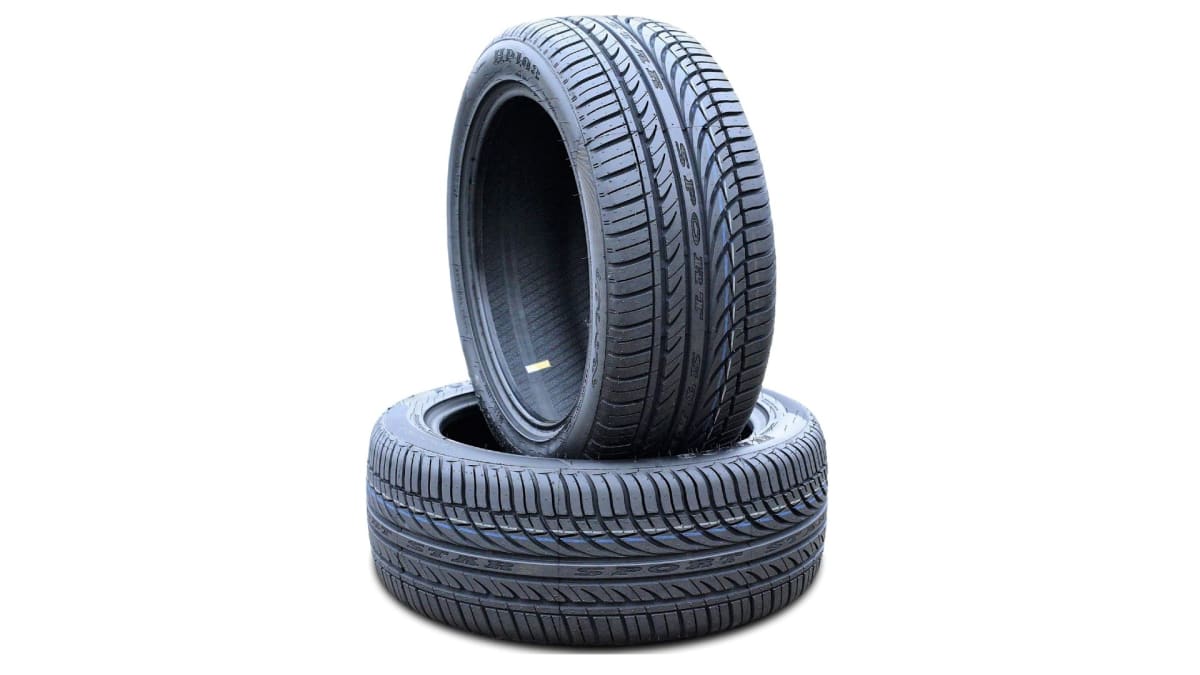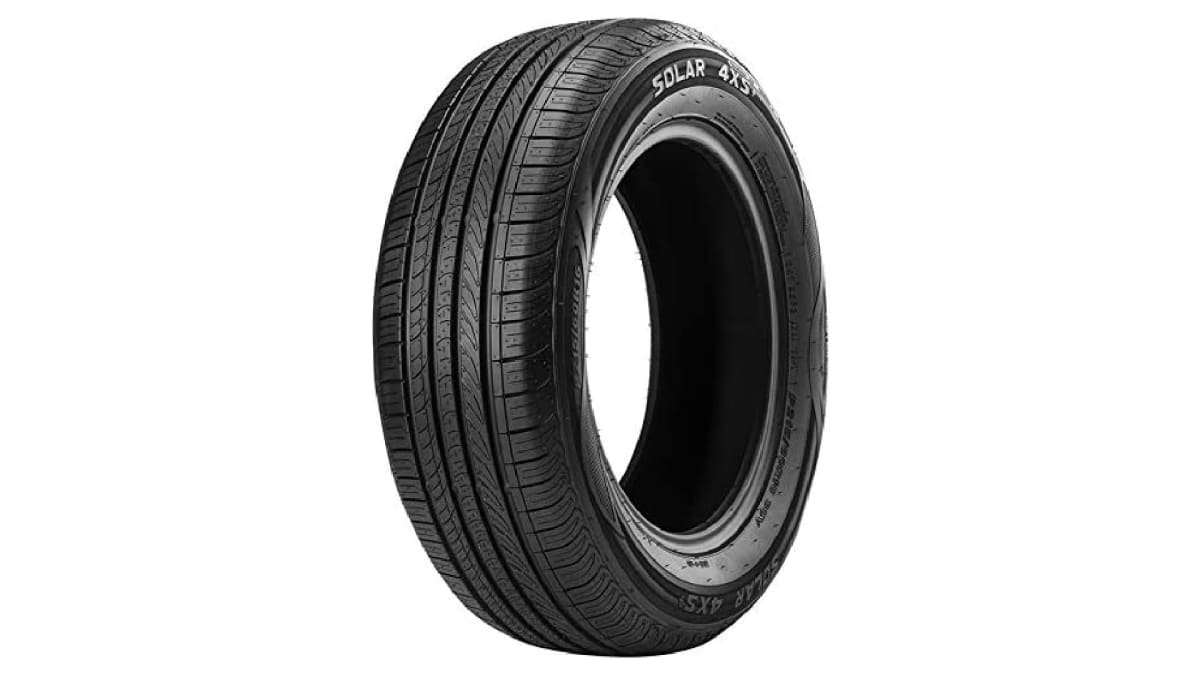This page is for personal, non-commercial use. You may order presentation ready copies to distribute to your colleagues, customers, or clients, by visiting https://www.parsintl.com/publication/autoblog/
Autoblog is not affiliated with the brands featured in our articles, but when you make a purchase through links on our site we may earn a commission.
Looking for tires that offer an ideal grip and a smooth ride all year long? Do yourself a favor and invest in the top-rated all-season tires! Car tires are an essential part of vehicles. No matter the size or shape of the car, excellent tires are a must for maximum safety while driving. Every year over 10,000 car accidents occur due to poor tire conditions, and this is because vehicle owners don’t prioritize swapping their tires according to weather conditions.
The cost of changing tires every few months is pretty high, but this shouldn’t lead to drivers compromising their safety on the road — the easiest solution is to invest in all-season tires. They fit standard sedans and SUVs and ensure a safe drive on wet and dry roads, and they’re also quiet, have sufficient tread depth, and are very versatile. Purchasing all-season tires, especially for newbies, isn’t easy. You’ll have to do plenty of research to get the right tires for your car, and to help you out we’ve listed the top all-season tires below!
Hankook Kinergy All-Season Tires: Great all-arounder
Buy on Amazon
These Hankook all-season tires are a great choice for all road conditions. These tires come with an H speed rating that offers you up to 130 mph of maximum acceleration, and they also offer more mileage than summer and winter tires. These tires’ section width is 205 millimeters with 6.5-inch rim width, and their treads have a load index of 91, along with some great tire depth. These tires can support a little over 1,350 pounds of weight and have an AA tread rating that offers a great grip and smooth ride no matter the road conditions. Thanks to their great value, smooth performance and impressive features these all-season tires have earned our top pick.
Pros
Cons
Atlas All-Season Tires: Another great option
Buy on Amazon
These Atlas all-season tires will fit passenger vehicles and SUVs, and they feature an asymmetrical tread pattern that enhances tire traction as well as a 40,000-mile treadwear warranty. The shape of these tires helps them keep their directional stability, even at high speeds. These tires have an impressive performance record thanks to their all-weather design and will work great no matter the season. Their reduced rolling resistance helps them avoid usual wear and tear, giving you tires with a longer lifespan. With tear-resistance, solid compound manufacturing, and a thick coat on the tires, these bad boys can offer you a quiet and comfortable ride.
Pros
Cons
Firestone All-Season Tires: Great value
Buy on Amazon
These Firestone all-season tires are the ideal combination of quality and cost-efficiency. They come with a 65,000-mile tread warranty and will let you commute all year long — winter-driving issues can be a thing of the past thanks to the circumferential grooves on these tires that help with traction on wet roads. These tires also have a continuous center rib that helps reduce sound while providing constant road contact for maximum stability. A spiral wrap encircles these all-season tires with a continuous nylon wrap that helps the tire retain its original shape and perform well, even at high speeds. Their steel belt construction and polyester body cord offer durability and reduce the possibility of punctures, and these tires also have great wear resistance, making them a long-lasting choice. With their all-season tread design, you’ll notice increased responsiveness and year-round performance with these tires on your vehicle.
Pros
Cons
Fullway All-Season Tires: Also consider
Buy on Amazon
These all-season tires scream practicality, and they happen to fall into both the “functional performance “ and “high-performance” categories. Their reinforced sidewalls guard the wheel’s rims and prevent accidental curb damage, and they’re a great fit for passenger vehicles and SUVs that can benefit from year-round traction. These tires also offer a smooth and quiet drive thanks to their tread design that cancels noise and reduces vibrations. The increased surface contact of these all-season tires’ treads helps give you a safer, quicker steering response to keep you in control behind the wheel and ensure a stable ride. Their design grips the road well, offering great handling, exceptional grip, and a smooth, comfortable drive no matter the weather.
Pros
Cons
Multi-Mile All-Season Tires: Another option
Buy on Amazon
These Multi-Mile all-season tires can offer a smooth ride and a great grip for your car all year long. Circumferential grooves and wide lateral notches increase your vehicle’s overall hydroplaning resistance by efficiently evacuating water, and the high-quality materials that these tires are made with make for a strong and durable build. These all-season tires have a load capacity of over 1,800 pounds and are a universal fit, making them great for nearly all vehicles. They can offer great traction no matter the season and a quiet ride no matter the road. These high-performance tires combine premium quality and efficient design to give you great value for your money.
Pros
Cons
Whether you want a quieter ride, better handling in the snow, or the ultimate grip, it’s important to invest in the right tires. This is because the type and quality of your tires will greatly affect the way you drive and are the deciding factor when it comes to a smooth, comfortable driving experience. With this in mind, let’s get into the nitty gritty of all-season tires to find the right one for your car.
Vehicle tires vary depending upon the conditions in which they’re driven. From dry and hot climates to wet and snowy ones, different road conditions require different tires, which is why owners need to swap tires to always ensure a safe, smooth ride.
Swapping tires can be a pretty big hassle, and another, more convenient option for vehicle owners that live in places where the seasons change is to invest in all-season tires. All-season tires have a design that’s a combination of both summer and winter tires and contain well-rounded features for any kind of use.
When shopping for tires, you’ll likely see a lot of different choices, which can be pretty overwhelming. To help you out, we’ll be differentiating tires based on the weather conditions they’re ideal for.
These tires are great for dry or wet roads in places where temperatures are relatively high. They come with a large contact area, less tread depth, and a good dry grip which gives them great traction on dry and hot roads. They have stiffer sidewalls and overall great steering response. These tires work better in temperatures above 40⁰ F but will lose their grip in snowy and colder conditions.
These tires perform great on ice and snow in relatively low temperatures. Sporting a complicated pattern, water easily slushes out of these tires, and their deep grooves become packed with snow and offer great traction. These tires’ tread offers a great grip, and thanks to their zig-zag design they won’t slip, even on wet or snowy roads. Drivers often use these tires if they live in a predominantly cold region and have long spells of rain or snow, but because these tires are soft and flexible they won’t last in the summer heat and will easily wear out.
All-season, or all-weather, tires are a combination of the two kinds of tires mentioned above. They combine winter tire and summer tire characteristics, and they work great in most regions as they offer good cornering, improved traction, grooves, and longevity.
If the weather in your region permits, you should consider opting for all-season tires. Here are the benefits you’ll experience by making the switch:
These tires are super convenient for users — you can skip long hours changing tires, save money on installation costs, and have great wheels all year long.
With two sets of tires, one set for winter and another for summer, you’ll also require space to store them. Not everyone will have this much space in their garage, which can lead to paying for extra storage at a facility. But don’t worry, because you can easily avoid renting out space and save those extra bucks with a great set of all-season tires!
All-season tires have grooves that fill up with snow and help improve traction on snowy roads, and they also have patterns that let water move out and won’t cause trouble on wet surfaces.
These tires work in the winter, but they’ll also work in the summers too. They’re slightly on the softer side, but in summers, after a little while, they’ll work great on dry roads thanks to their versatile design.
Let’s face it, shopping for car accessories is expensive, especially if you have to buy tires. Tires are expensive because they’re essentially the most important part of your car, and safety depends heavily on them. Tires already cost a lot, and combining two sets for your car can certainly be just a little too much for your wallet to handle, which is why a better, cheaper, and more convenient option is to invest in all-season tires.
When you’re out purchasing all-season tires, whether online or in a store, this plan can help:
The first step to purchasing tires is understanding what your car requires. If you live in a region that’s cold year-round, it’s probably a good idea to invest in tires specifically for that region. If you instead reside where the seasons change without ever getting too extreme, a set of all-season tires should do the trick for your vehicle.
After deciding which kind of tires to purchase, it’s time to know all the details. A long alphanumeric text will be on the side of your tires, and this will tell you four things — the first letter will tell you if the tire is for a passenger car, SUV, or another vehicle, and the next states the tire’s size specifications.
Another letter tells you the tire’s load index, which helps you understand how much weight it can lift, and another specifies the maximum miles per hour the tires can go. You should always get the same size and specifications as your previous tires — this can help you avoid purchasing tires that may not fit your rim or otherwise look out of place on your vehicle.
Tires also vary in subtypes. Depending on your vehicle, the quality and performance of tires will also change. Even when it comes to all-season tires, you’ll find ultra-high-performance tires, high-performance all-season tires, grand touring tires, standard touring tires, and passenger all-season tires– the final choice depends on your preference and needs.
A tire’s traction rating lets you know what kind of traction it will provide. A tire with a traction rating of AA or A will offer a pretty solid grip and a smooth drive, and you also might see BB, C, or other ratings, depending on their traction.
Another thing you can keep an eye out for is the mileage guaranteed by the manufacturer. Sometimes tires don’t last as long as stated, and other times they can exceed the stated mileage depending on their usage. Always go for a higher mileage warranty to stay on the safe side.
Q: When should I replace my tires?
Average tire life often ranges from about four to six years, and can even extend up to 10 years. The more time passes, the more you should consider investing in new tires.
Q: Where can I buy good tires from?
You can either purchase them at a nearby store or check online. Just make sure that they match what you’re looking for.
Q: What does tire maintenance include?
Tire maintenance includes rotating the tires after every 5,000 to 8,000 miles. It’s also a good idea to check your tires with a digital air pressure gauge every other week.
Q: How much air do my car tires require?
The amount varies — you can check the exact figure on the inside of your car door or look up your specific car model online.
Please sign in to leave a comment.
2023 Chrysler 300 gets one new option, otherwise unchanged
Next-gen Ford Mustang gets an extremely racy audio tease
This week in EVs: Electric Jeeps, Chevy Equinox, reborn VW bus
Junkyard Gem: 1971 Mercury Comet 2-Door Sedan
UAW workers strike at Stellantis casting plant in Indiana
Junkyard Gem: 2003 Ford Crown Victoria Police Interceptor
News, Reviews, Photos, Videos
delivered straight to your in-box.
Thanks for subscribing.
Check your in-box to get started.
More Info
You must be logged in to perform that action.
Please enter a display name
